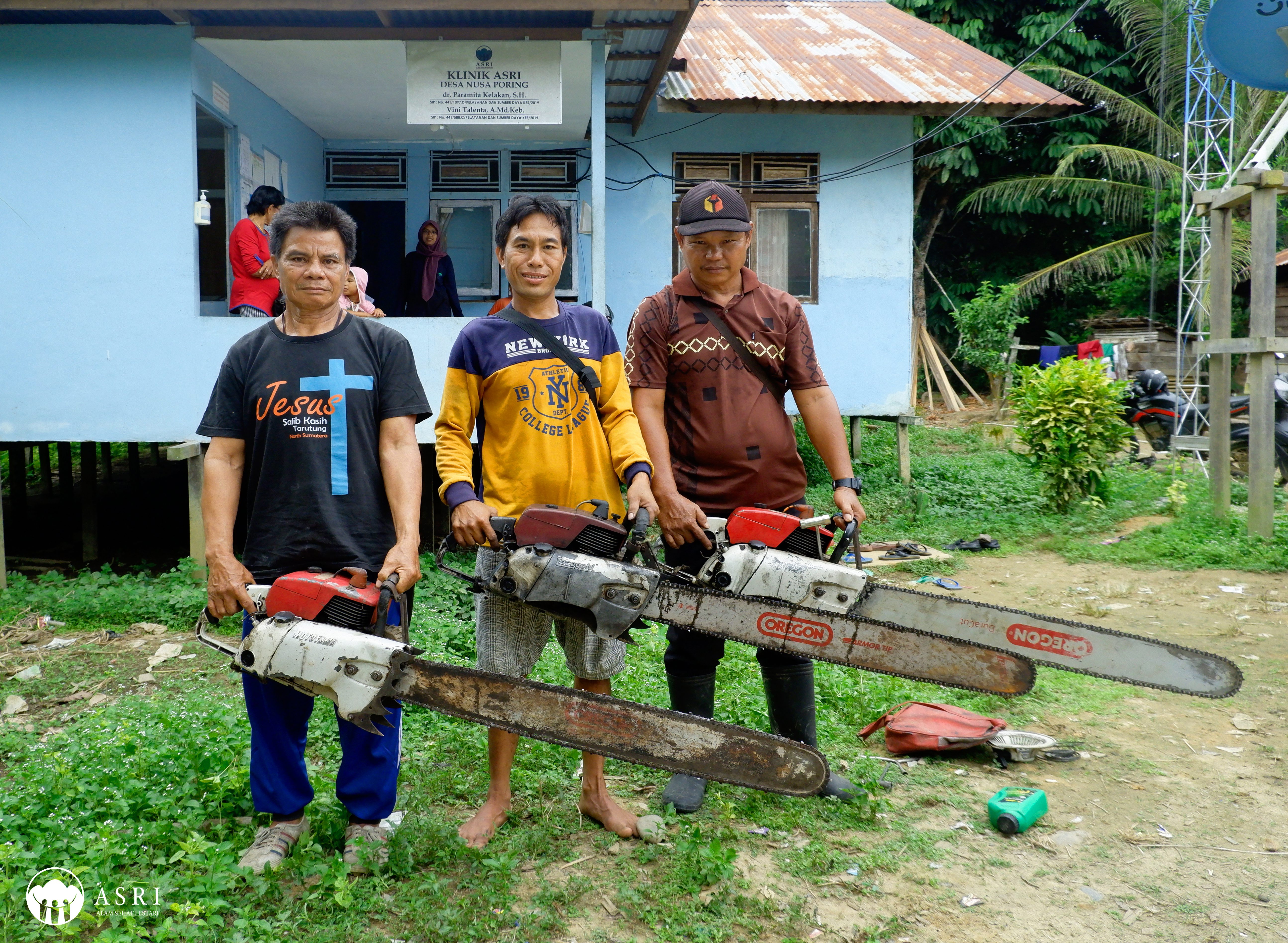Chainsaw Buyback: Giving Better Alternative Sources of Income for Illegal Loggers

-
Date:
12 Jan 2023 -
Author:
KEHATI
The lack of alternative income sources for those residing close to the forest in Kalimantan is a major contributing factor to forest destruction. They have no choice but to rely on forest products for family survival due to their remoteness and low level of education.
For instance, that is what happened in Mawang Mentatai Village and Nusa Poring Village, two villages in the Bukit Baka Bukit Raya National Park (known as TNBBBR) buffer zone. Both are situated in West Kalimantan’s Menukung District, which is part of the Melawi Regency.
“To solve these issues, we require novel approaches. Enhancing welfare of the poor is the major aim since it may support the sustainability of forests”, The Alam Sehat Lestari Foundation’s (ASRI) Executive Director, Nur Febriani, said.
One of ASRI’s creative ideas is the Chainsaw Buyback Program for illegitimate loggers. The Kalimantan Tropical Forest Conservation Act (TFCA) KEHATI Foundation provided financing to ASRI. Communities taking part in the initiative receive funds as well as management and technical support.
MSME Financing.
Through the Chainsaw Buyback Program, ASRI provides MSME (Micro, Small and Medium Enterprises) business capital to illegal loggers. ASRI works to provide these illegal loggers with alternative jobs by assisting them in obtaining business capital and entrepreneurial knowledge.
In exchange for business capital and entrepreneurial training, the loggers were invited to hand over their work tools, specifically chainsaws. This program is designed to assist them in becoming independent and resilient entrepreneurs.
The non-cash capital used to replace the chainsaw, according to Febriani, was provided for business purposes.
“Instead of money, the items needed to run a business serve as capital. ASRI paid the vendor directly in cash the purchase price of the capital goods”, Febriani asserted.
The societies are expected to present simple ideas that include necessary capital goods and business plans. Business plans include kiosks, fish ponds, and other types of businesses. According to Febriani, ASRI funds not only new businesses but also the expansion of existing side businesses.
Mawang Mentatai Village and Nusa Poring Village residents gave the Chainsaw Buyback program positive feedback. The governments of the two villages are also on board. Illegal loggers were lured to come and give up their chainsaws by the alternative job offer.
“We assist them with everything from planning to management to product promotion”, said Febriani. From March 2022, this initiative has been in operation. ASRI is not functioning alone as a result of its partnership with the Forest Friends Group (known as SAHUT: Sahabat Hutan). This reaction helped ASRI spread awareness of the program among the hamlets.
The Chainsaw Buyback Program began in March 2022. Starting with the development of a framework, the next stage is socialization and activity integration with SAHUT.
The program coordinator, in collaboration with potential business actor partners, conducts prospect analysis. The analysis results show that the chicken and fish farming sectors are very attractive to illegal loggers due to high market demand and selling prices.
ASRI continues to provide ongoing assistance in order to anticipate the emergence of competition in the future. Regular community meetings are expected to foster an entrepreneurial spirit and mental strength at the family level in the operation of new businesses.
The difficulty in changing illegal logging activities is an impediment to running this program. Furthermore, the community remains skeptical that this program will improve family welfare.
Febriani stated that she did not guarantee increased earnings after illegal loggers changed jobs. She did, however, make certain that the MSME program was more stable, sustainable, and reassuring because they were no longer afraid of being pursued by forest rangers. “They are aware that what they are doing is illegal,” Nur Febriani continued.
